Information and Communication Technologies (ICT)
Mission
To harness education technology (EdTech) to enrich learning and teaching
Vision
To develop future-ready and responsible digital learners
Objectives
-
To enable students to learn more effectively & efficiently within and beyond curriculum using EdTech tools, including AI-enabled ones;
-
To develop students' digital literacy and technological skills through both curricular and co-curricular developmental experiences.
Harnessing EdTech within Curriculum

|

|

|
At our school, we harness the power of technology to create engaging and meaningful learning experiences. Digital tools are thoughtfully integrated into subjects such as English, Mathematics, Science, Mother Tongue Languages, and the Programme for Active Learning (PAL). Through this integration, students develop essential baseline ICT skills, digital literacy and technological skills — while thinking critically, collaborating effectively, and taking ownership of their learning.
Harnessing EdTech beyond Curriculum

|
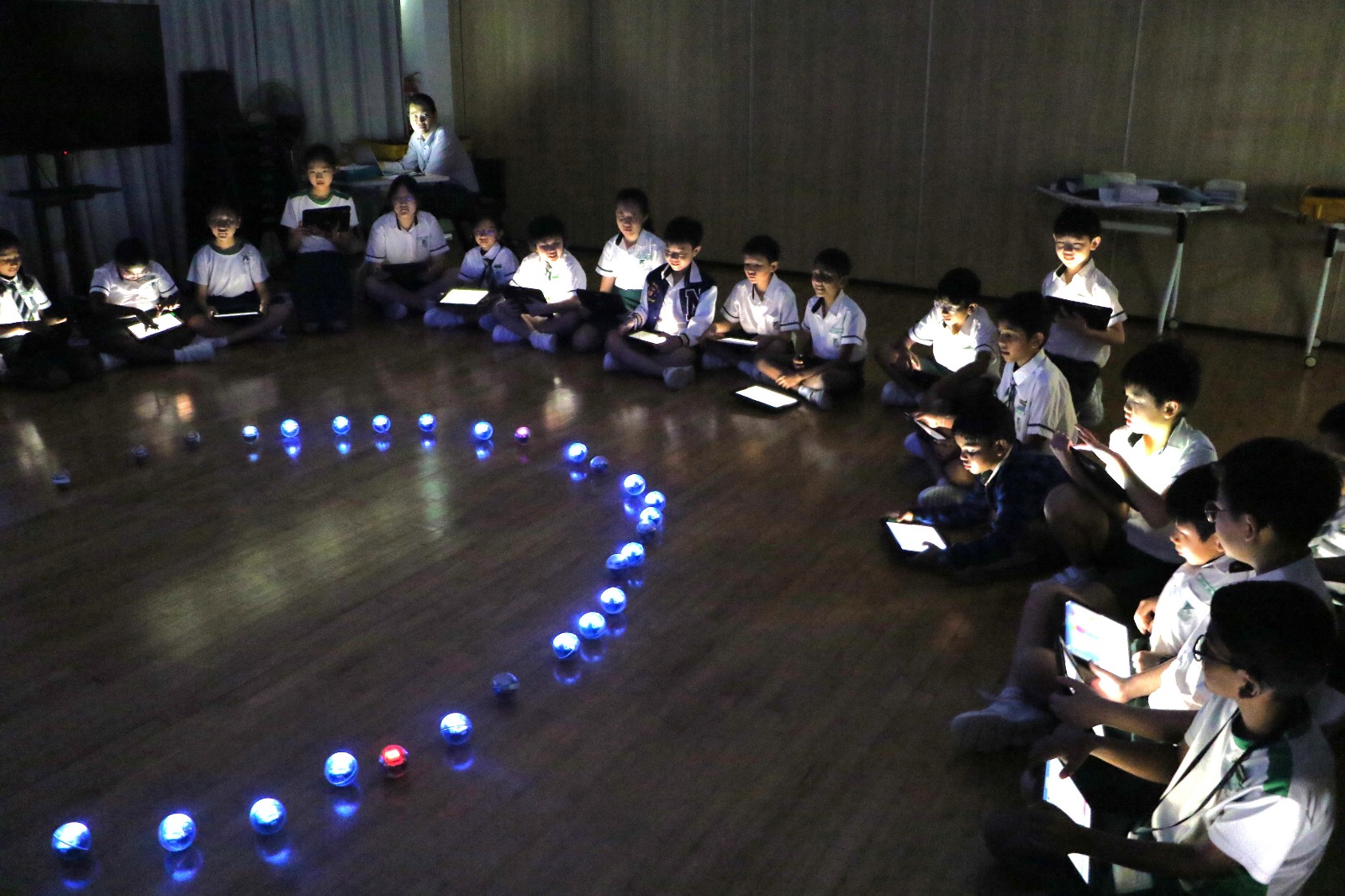
|

Beyond classroom learning, students participate in enrichment programmes that foster creativity and innovation. The Code for Fun programme, in collaboration with the Infocomm Media Development Authority (IMDA), introduces students to coding through interactive, hands-on experiences.
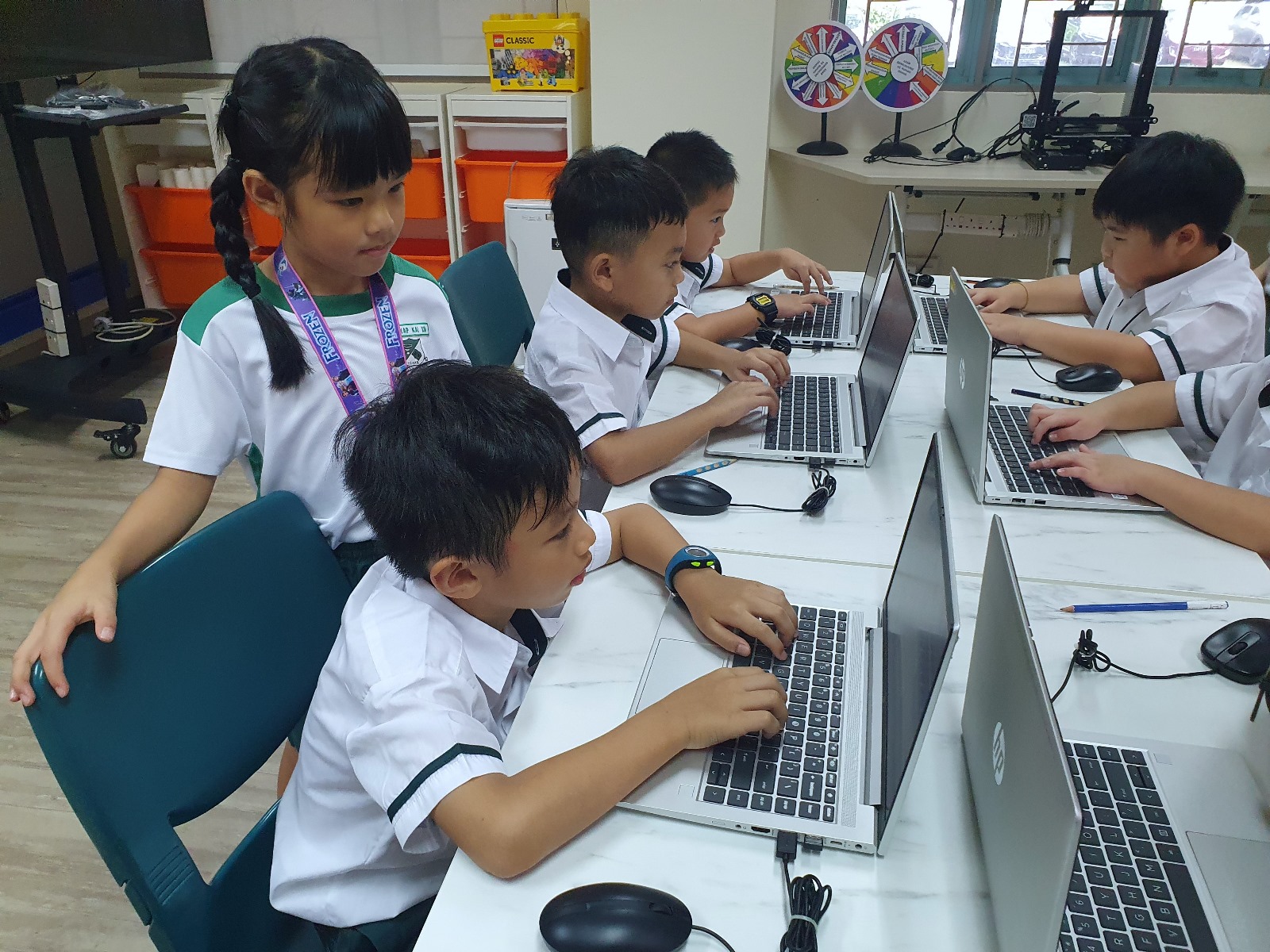
|
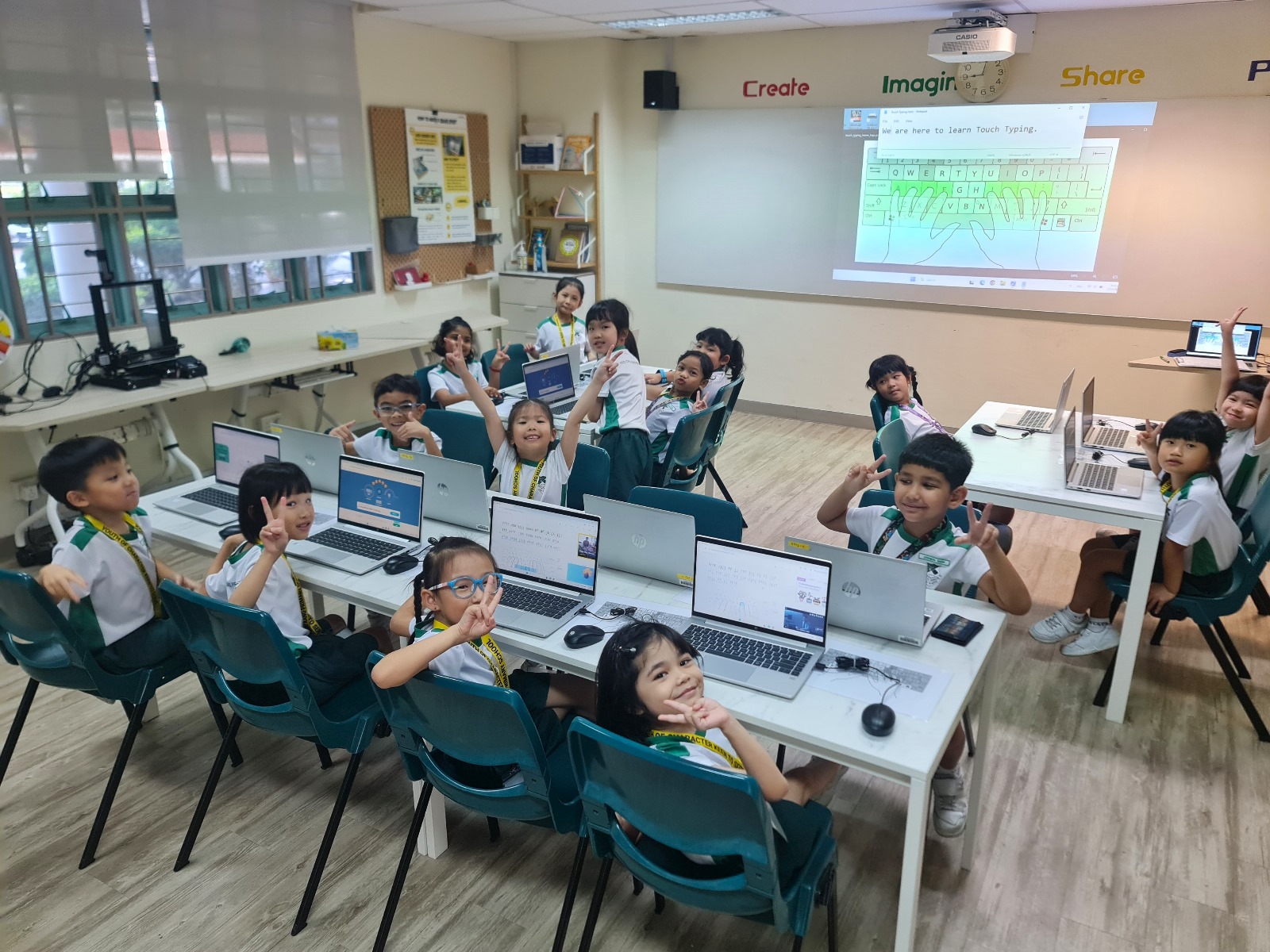
|
Our MakerSpace activities further enhance experiential learning through design and prototyping, such as Primary 1 students learning Touch Typing. A new Thinkers’ Lab is opening soon. This dedicated space will support future programmes designed to further enhance students’ learning experiences and develop their innovative thinking.
Promoting Cyberwellness and Responsible ICT Use
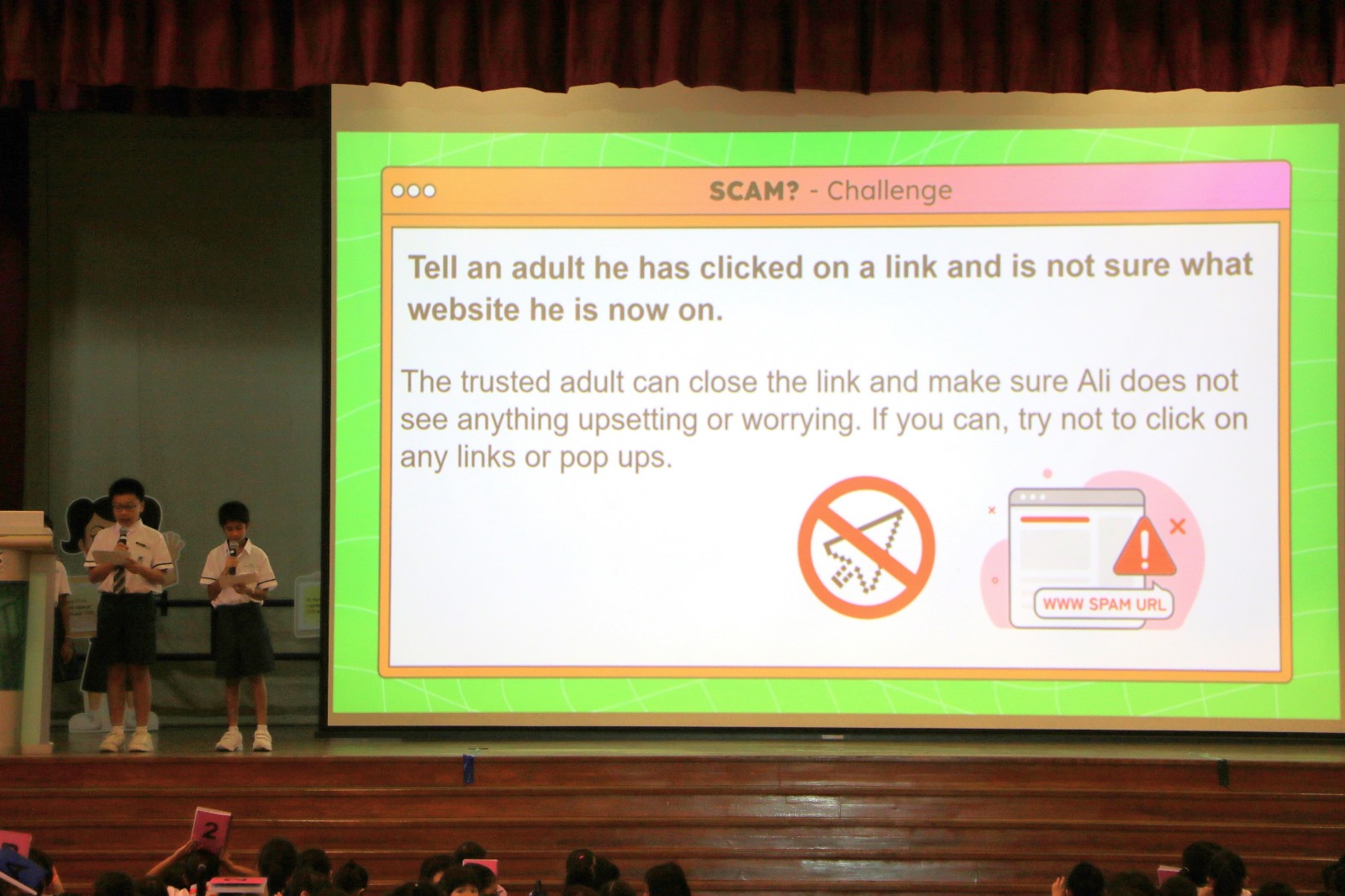
|
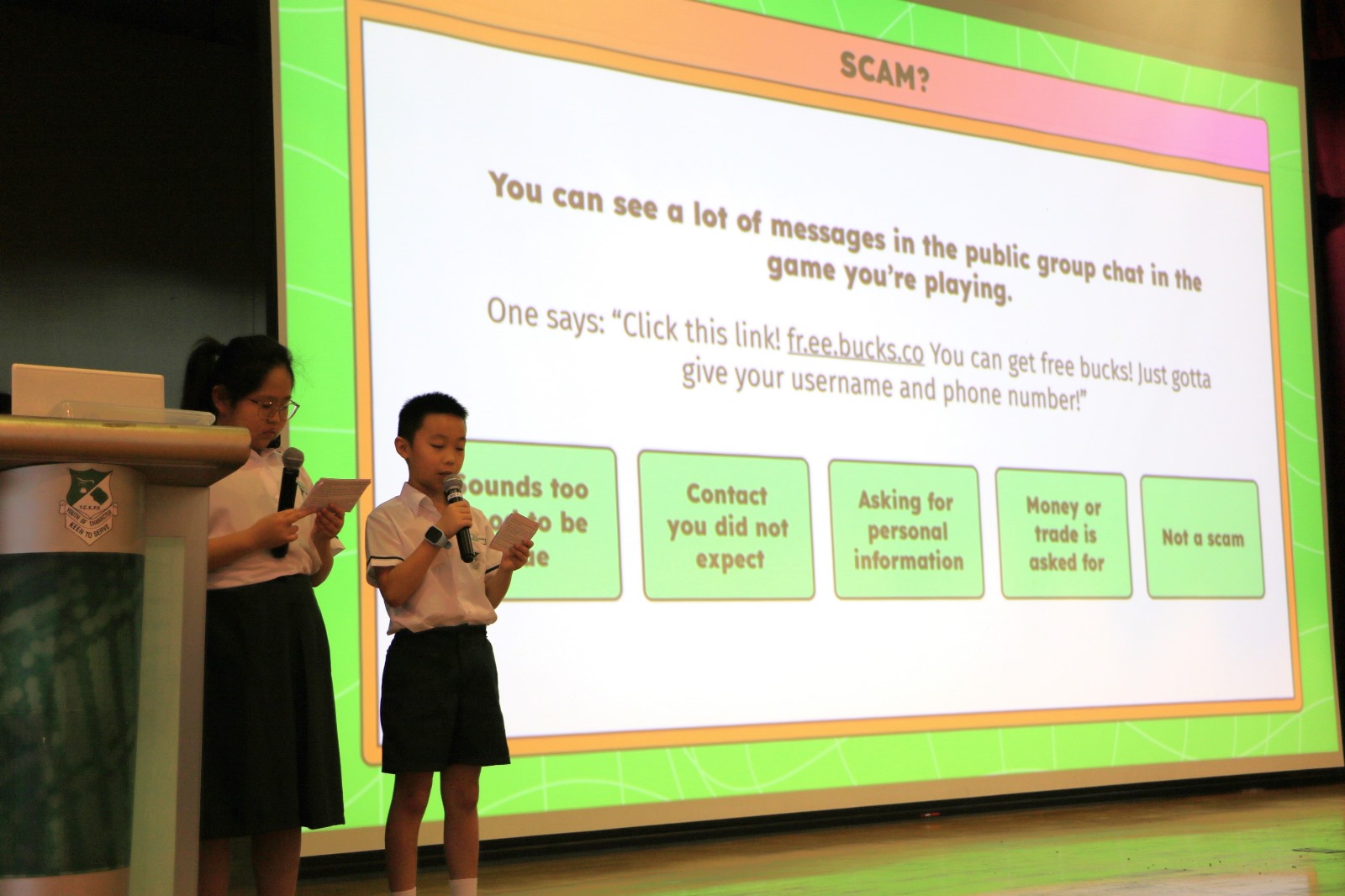
|

|
We place strong emphasis on Cyberwellness to support students’ well-being in the digital space. Our curriculum helps students harness technology for positive purposes, maintain a respectful online presence, and become safe, responsible users of digital tools. These values are reinforced through engaging assembly talks that relate to real-life online experiences.
To strengthen peer influence, trained Cyberwellness Ambassadors take the lead in promoting responsible digital behaviour. By sharing practical tips, they help create a positive digital culture where students not only thrive online but also look out for one another. Please refer to the following link for YCKPS AUP (Acceptable Use Policy) for use of EdTech Resources.

